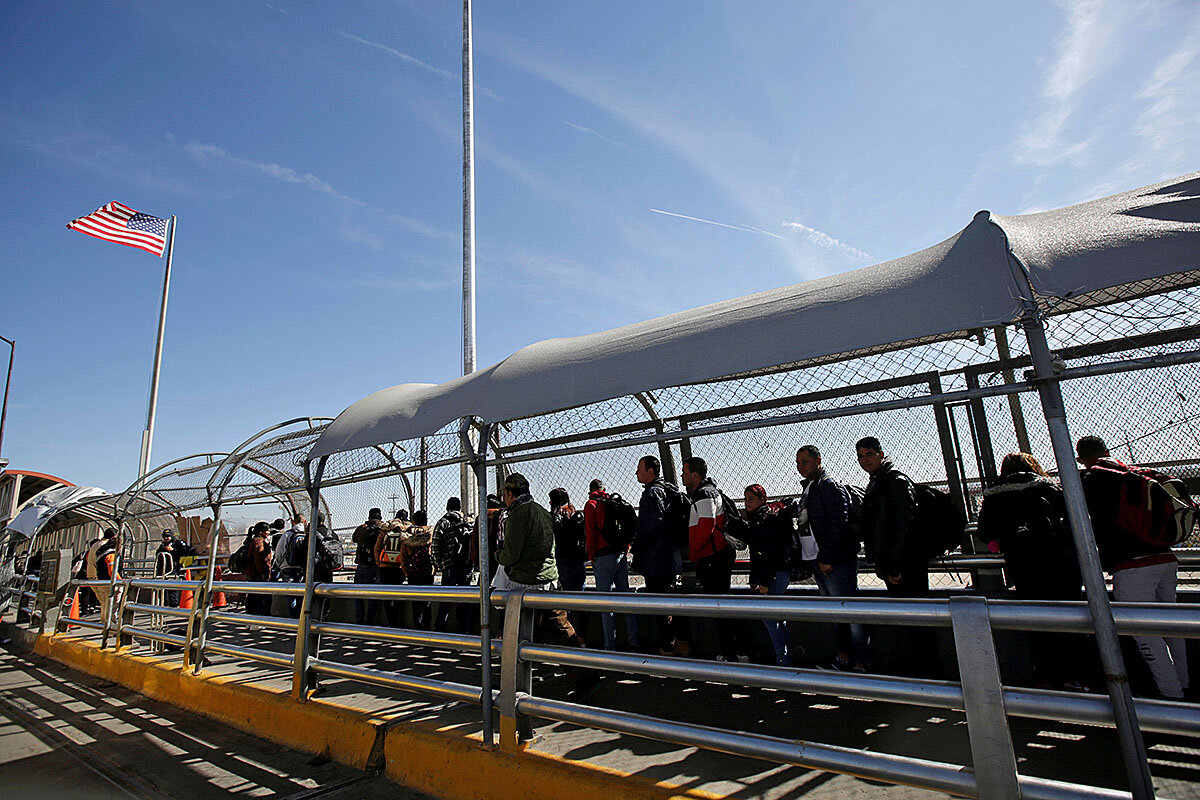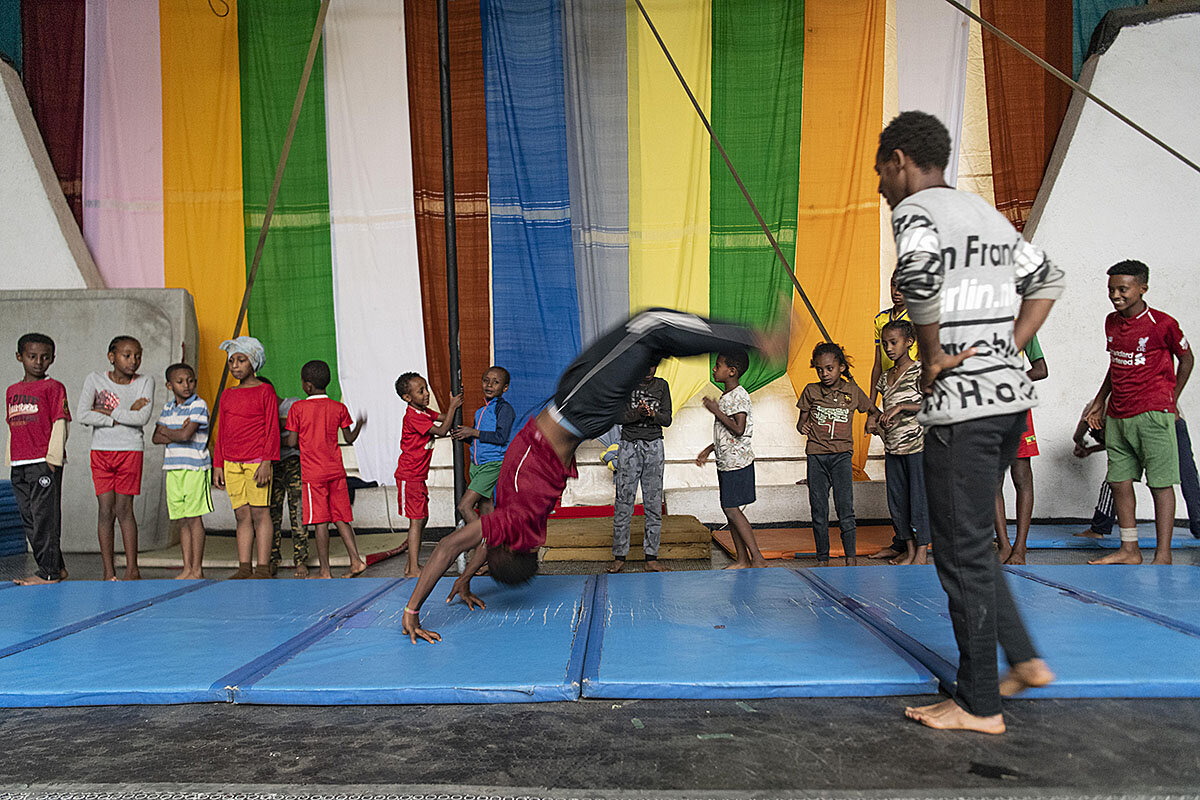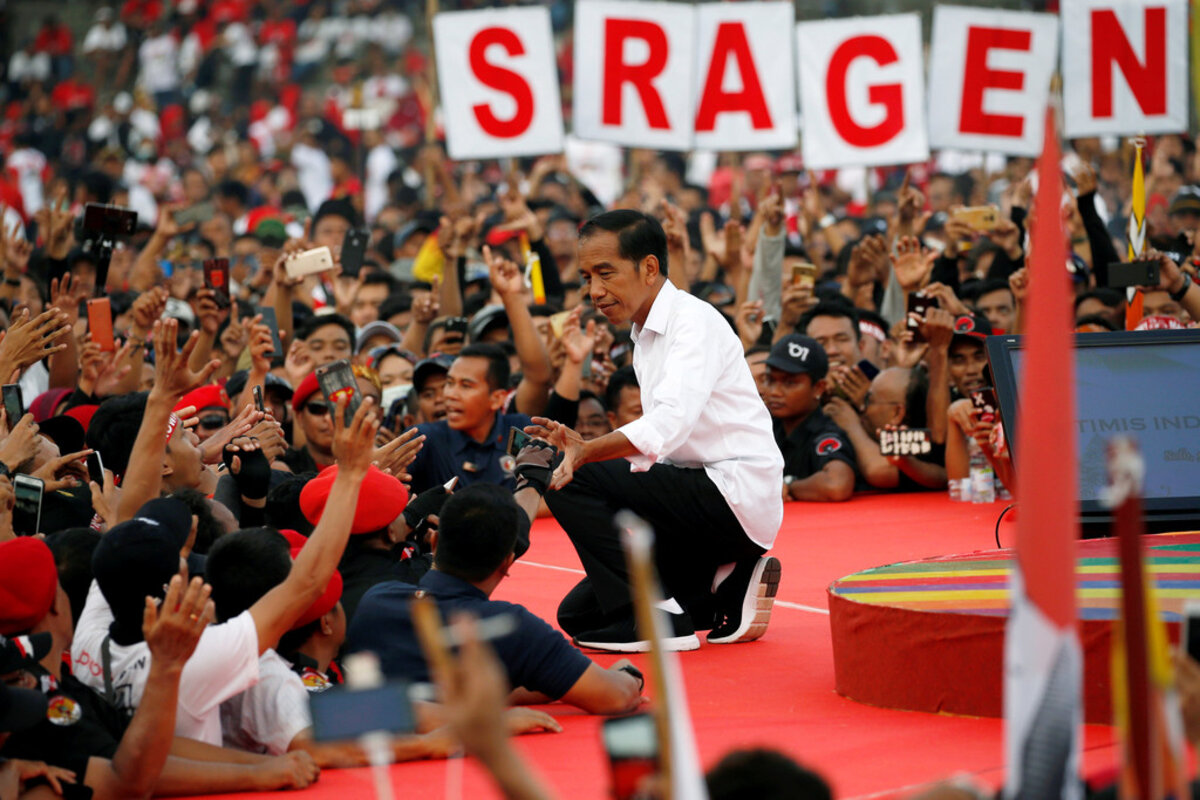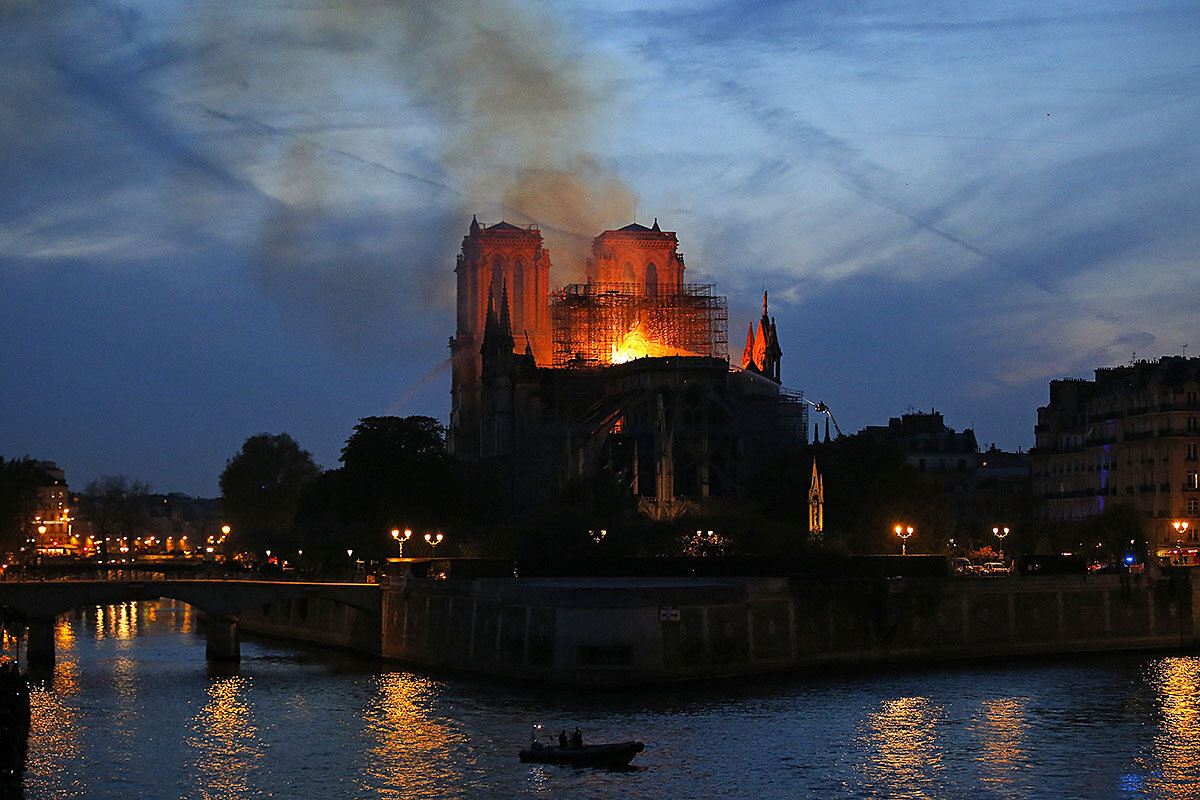Another rite of American spring reminds us that trust and compliance are mutually dependent. A lot hangs on the nation’s tax-collection agency being made – and being seen as – effective and fair.
Monitor Daily Podcast
- Follow us:
- Apple Podcasts
- Spotify
- RSS Feed
- Download
 Clayton Collins
Clayton Collins
There’s plenty afoot out in the big, wide world, but sometimes the world literally races to your door.
The Boston Marathon – which had its 123rd running today – finishes not far from the Monitor’s newsroom. It’s a particularly tough race, and not just because of the city’s capricious April weather.
It’s also a showcase of human connection. A Chicago friend who grew up here and has run it four times recalls the extra support in Wellesley, where students turn out, and on Heartbreak Hill, where the course exacts payback for a long decline.
Gene has marathoned in a half-dozen cities and he comes prepared. But he remembers cresting that half-mile rise at mile 20, staggering, then feeling a steadying arm – a spectator’s – from out of nowhere. Quiet heroes surface often, Gene says, “and they’re total strangers.”
Heroism has deep associations here. Six years after twin bombings killed three people and injured hundreds, testing Boston’s resolve, local poet Daniel Johnson recalls the humbling experience of being asked to compose words to be etched in bronze and mounted on stone at the blast sites, probably by summer.
“The city wanted a universal sentiment,” he says in a phone interview. The task was humbling, he says. It demanded economy of language. Mr. Johnson spoke with the families of those killed and with others. He says he’s been “gobsmacked” by stories of help and healing.
His painstaking work reflects a sense of reclamation. “[The words are] collective,” he says. “Everyone felt that this should be a collective remembrance.” His last verse concludes with a sentiment bigger than heartbreak, bigger than Boston: “Let us climb, now, the road to hope.”
We’re watching the developing story around the fire at the Notre Dame Cathedral (see Viewfinder, bottom) and planning a report from Paris. Now to our five stories for your Monday, including new perspectives on both the U.S. southern border and Ukraine, and a look at how a community circus is changing lives in Ethiopia.










